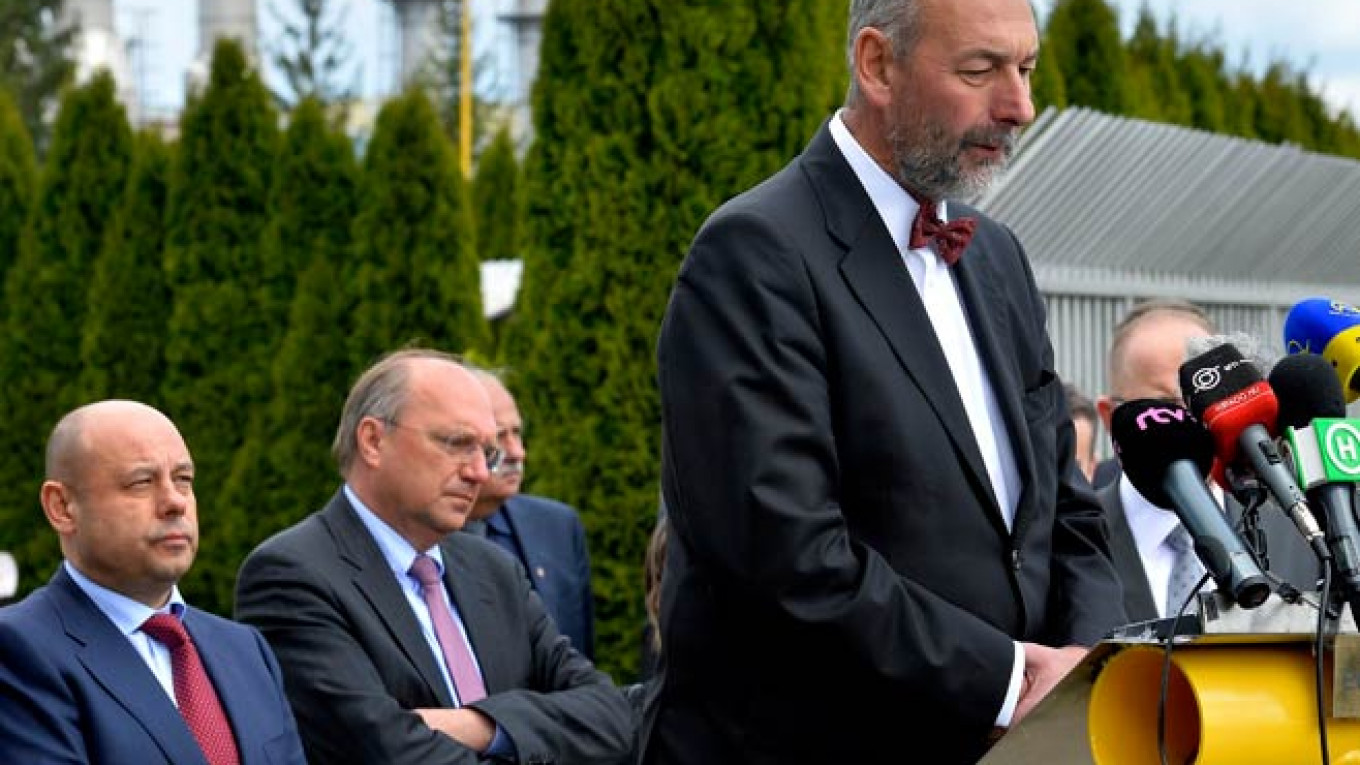PRAGUE — Slovakia and Ukraine have reached an agreement on opening up limited capacity for reverse flow of natural gas from Central Europe to Ukraine and will sign the deal on Monday, the Slovak Economy Ministry said on Saturday.
Ukraine is trying to secure alternative supplies to those from Russia's Gazprom since Russia annexed Crimea last month and Gazprom nearly doubled prices for its gas to levels Ukraine is refusing to pay.
Russia's seizure of Crimea from Ukraine has set off the most serious East-West rift since the end of the Cold War, resulting in EU and U.S. sanctions and raising the threat of interruption of gas supplies from Russia to Europe.
Under the deal to be signed between the two countries' pipeline operators, Slovakia will make technical adjustments to an old unused pipeline so it can ship more than 3 billion cubic meters of gas a year to Ukraine from around October, rising to up to 10 bcm by early next year.
Ukraine has been pushing for another technical solution allowing much larger volumes but Slovakia is refusing that because it fears it would violate its contracts with Gazprom.
"I am convinced that this solution is the first possible and realistic one, and one which does not threaten the energy security of Slovakia and other EU countries," Slovak Economy Minister Tomas Malatinsky said in a statement.
The Ukrainian Energy Ministry also said it expected the agreement to be signed in Bratislava on Monday.
Europe takes about a third of its gas imports from Russia, and about 40 percent of that amount flows through Ukraine.
Ukraine, with annual consumption of 50 bcm, needs much more than what Slovakia is offering to have a back-up in case supplies from Russia are interrupted.
It has been pushing for a bigger reverse flow solution that would involve turning the direction of gas flow in one of the four tubes of the main pipeline from Russia to the West.
That would allow shipments of around 30 bcm, securing a lot of Ukraine's need for its own consumption and for filling up its storages before next winter, which is needed to maintain enough pressure in the pipeline system and keep transit of Russian gas to Europe running.
But Slovakia, backed by the European Commission, says such a step would be against its contracts with Gazprom and risk sanctions or a halt in supplies. Gazprom's consent for such reverse flow is needed, the Commission and the Slovak government say.
The EU is seeking talks with Russia on gas, including the larger reverse flow option.
The agreement to be signed on Monday calls for taking gas on Slovak territory and pumping it to Ukraine via an unused tube connecting the Slovak Vojany thermal power station with a storage site in Ukraine's Uzhorod, just a few kilometers across the border.
Ukraine must still find gas to ship through the tube. Germany's RWE has started pumping smaller amounts to Ukraine from Poland, and said it could ramp up the shipments once there is an agreement on the Slovak reverse flows.
Moscow, which does not recognize the Ukrainian government that replaced ousted President Viktor Yanukovych in February, nearly doubled the gas price for Ukraine to $485 per 1,000 cubic meters, starting from April. Kiev, which is in deep financial trouble, refused to pay.
A Message from The Moscow Times:
Dear readers,
We are facing unprecedented challenges. Russia's Prosecutor General's Office has designated The Moscow Times as an "undesirable" organization, criminalizing our work and putting our staff at risk of prosecution. This follows our earlier unjust labeling as a "foreign agent."
These actions are direct attempts to silence independent journalism in Russia. The authorities claim our work "discredits the decisions of the Russian leadership." We see things differently: we strive to provide accurate, unbiased reporting on Russia.
We, the journalists of The Moscow Times, refuse to be silenced. But to continue our work, we need your help.
Your support, no matter how small, makes a world of difference. If you can, please support us monthly starting from just $2. It's quick to set up, and every contribution makes a significant impact.
By supporting The Moscow Times, you're defending open, independent journalism in the face of repression. Thank you for standing with us.
Remind me later.






